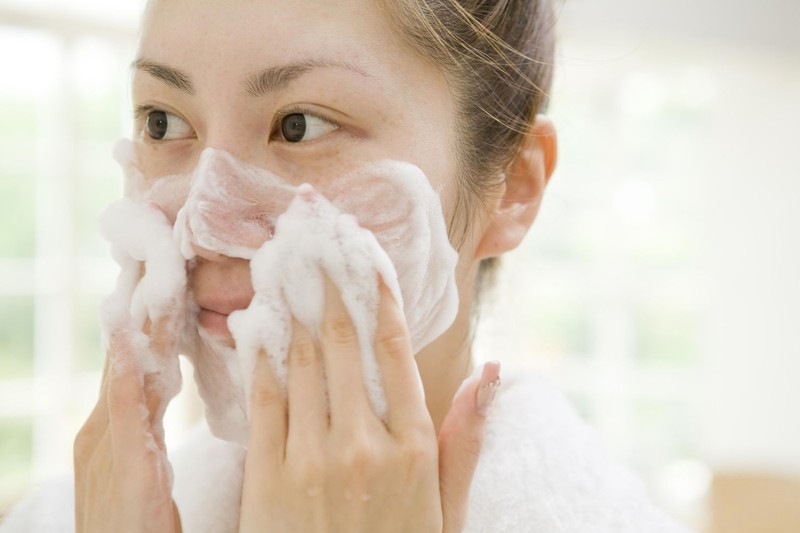Soap has been a household item for centuries to maintain personal health and hygiene. It is made from a mixture of oils and fats that react with an alkali, usually sodium hydroxide, to form a bar. Although soap is used primarily for washing your hands and body, it can also serve as a tool to treat a wide range of skin problems. We will discuss the benefits of soap for skin problems and why it should be a part of your skincare routine.
1. Cleansing
Soap is known for its ability to clean the skin. Soap removes dirt, oil, and other impurities from the skin’s surface. Regular use of soap can effectively remove these impurities from the skin and prevent future problems. A soap with natural ingredients, such as tea tree oil or lavender oil, can be beneficial for oily skin. It will help to regulate oil production and prevent breakouts.
2. Hydration
Today’s soaps are often formulated with moisturizing ingredients like shea butter, glycerin, and aloe vera. These ingredients help to moisturize the skin. These ingredients attract water molecules to the skin to prevent dryness and flakiness. You can keep your skin healthy and soft by using soap that has moisturizing properties.
3. Exfoliation
Exfoliation is an important part of any skincare routine as it helps to remove dead skin cells and promote cell turnover. Exfoliating ingredients like sugar, oatmeal, and coffee are common in soaps. They help to gently remove dead skin cells, leaving behind smoother, brighter skin. Regular exfoliation can also help to reduce the appearance of wrinkles, fine lines, and age spots.
4. Anti-bacterial
Antibacterial soap is a soap that can benefit those with sensitive or acne-prone skin. Antibacterial soap contains ingredients like triclosan and benzoyl peroxide that can kill bacteria on the skin’s surface, which can cause breakouts. It is important to remember that antibacterial soap should not be overused as it can lead to the development of antibiotic-resistant bacteria.
5. Soothing
A soap with soothing ingredients such as calendula, lavender, and chamomile can reduce redness, inflammation, and itching for those with sensitive or irritated skin. These ingredients are known for their anti-inflammatory properties, which can soothe and calm the skin, making them ideal for those with eczema, psoriasis, or rosacea.
6. Cost-effective
Soap can be a cost-effective way to maintain healthy skin compared to other expensive skincare products. There are many luxurious soaps available on the market, but even basic bar soaps can help with skin problems. Plus, soap is a versatile product and can be used to wash your hands, body, and even hair, which makes it a versatile addition to your skincare routine.
There are many benefits of using soap for skin problems. However, not all soaps are created equal. Some soaps can contain harsh ingredients that can strip away natural oils, leading to dryness or irritation. Choosing a soap that is gentle on your skin and suitable for your particular skin type is essential to avoid such problems.
Here are some tips to help you choose the best soap for skin problems:
- Consider your skin type: If you have dry skin, choose a soap with moisturizing ingredients like shea butter or coconut oil. For oily skin, look for a soap that is non-comedogenic and can reduce excess oil production.
- Look for natural ingredients: Soaps that contain natural ingredients are better for your skin. They can help prevent irritation and allergic reactions.
- Avoid harsh chemicals: Some soaps can contain harsh chemicals like parabens, sulfates, and synthetic fragrances. These ingredients can cause skin irritation and dryness.
- Read reviews: Before you buy a soap, make sure to read the reviews of other customers. This will give you an idea of how it worked for them.
- Patch test: Before applying any soap all over your body, do a patch test on a small area of the skin to ensure that you do not have any allergic reaction or irritation.
These tips will help you choose the right soap for your specific skin type. Including soap in your skincare routine can offer many benefits for the skin and help to address various skin problems.
Although soap can provide many benefits for your skin, it’s important to be aware of any potential flaws or drawbacks that may come with its use. These include:
1. Drying effects: Some soaps, particularly those that contain harsh fragrances or ingredients, can strip the skin’s natural oils, dry out the skin, and cause irritation or dryness.
2. Allergic reactions: Some soap ingredients, such as preservatives and fragrances, can cause allergic reactions in some people.
3. Skin sensitivity: There are some people who have skin that is naturally sensitive to certain ingredients in soap, leading to redness, itching, or other forms of irritation.
4. Bacterial resistance: Overusing antibacterial soaps can lead to antibiotic-resistant bacteria, which can be a serious public health concern.
5. Environmental impact: Soap production and disposal can have environmental impacts, such as the release of polluting chemicals or the depletion of natural resources.
6. Limited efficacy for some skin conditions: Soap can be effective in treating certain skin problems, but it may not be sufficient to treat more severe and chronic ones.
Choosing a mild, natural soap that suits your skin type can avoid these potential flaws. You should use soap in moderation and follow a healthy skincare routine that includes moisturizing and sun protection. It is also important to consider the environmental impact of using soap and consider more sustainable alternatives when possible.
In conclusion, soap can be an effective tool for addressing a wide range of skin conditions. It cleanses, moisturizes, exfoliates, and has soothing and anti-bacterial properties, which makes it an essential part of any skincare routine. Many soaps are available on the market, so you must choose the right one for your skin type. You can keep your skin glowing and healthy by including soap in your skincare routine, no matter whether you prefer a basic soap or a more luxurious one.
Here are some frequently asked questions (FAQs) about using soap for skin problems:
- Is using soap bad for your skin?
Not necessarily. Some soaps can cause skin irritation and dryness. However, gentle soaps suited for your skin type and concerns can offer many benefits.
- How often should I use soap on my skin?
Experts recommend using soap once or twice daily, depending on your skin type and concerns. Excessive scrubbing or overuse can cause dryness, irritation, or damage to the skin barrier.
- Is soap good for acne?
Yes, gentle soaps can be used to clean the skin and get rid of excess oil and dirt that can contribute to acne breakouts. To treat and prevent acne, choose a soap that is non-comedogenic and has ingredients like salicylic acid and benzoyl peroxide.
- Can using soap cause dry skin?
Some soaps can contain harsh ingredients, which can cause skin irritation and strip its natural oils. You can avoid this by choosing a mild, moisturizing soap that suits your skin type and following up with a hydrating moisturizer after cleansing.
- Can using antibacterial soap contribute to bacterial resistance?
Yes, excessive use of antibacterial soap can lead to antibiotic-resistant bacteria, which can be a serious public health concern. It is recommended to use water and plain soap for most handwashing and hygiene purposes.
- What is the best bathing soap for men?
The best bathing soap for men depends on personal preferences, skin type, and specific needs.


